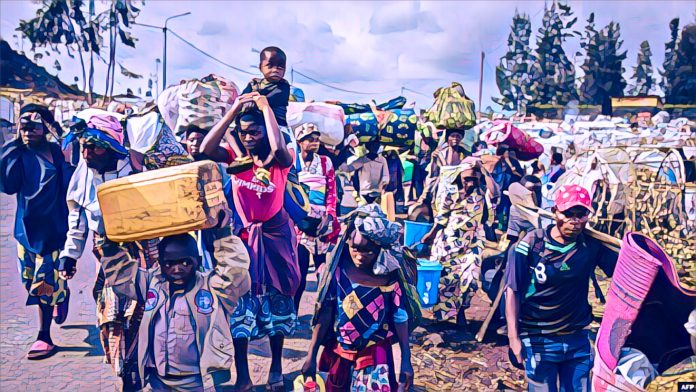Key Points
-
Conflict-related sexual violence undermines Africa’s peace and stability.
-
Survivors demand justice and stronger legal protections.
-
African Union’s new convention offers hope but needs enforcement.
On January 27, over 100 female prisoners were raped and burned to death during a mass jailbreak at Munzenze Prison in Goma, eastern Democratic Republic of the Congo (DRC).
This atrocity is among many instances where sexual violence is used as a weapon of war in the DRC’s ongoing conflict.
According to Human Rights Watch, sexual violence is a chronic problem in Congo’s prisons, which are overcrowded and poorly managed.
The DRC has consistently recorded the highest rates of conflict-related sexual violence (CRSV) globally over the past decade.
Widespread violence in the east affects women, girls, and increasingly boys, with all conflict actors implicated.
Similar patterns are observed in South Sudan, Sudan, Ethiopia, and Nigeria, where armed groups target women and girls in mass and gang rapes, often in front of families and communities.
State security actors, including peacekeepers mandated to protect civilians, are often perpetrators of CRSV.
In the Central African Republic (CAR), peacekeepers have been implicated in sexual exploitation and abuse, exacerbating an already dire situation where armed groups use rape as a tool of war.
Survivors demand justice and stronger legal protections
A mix of ideological and structural factors fuels these trends. Armed groups use CRSV to terrorize, humiliate, and control communities.
Rape is embedded in broader war strategies, including mass displacement, collective punishment, and genocide.
CRSV also magnifies high levels of sexual and gender-based violence that occur during peacetime.
A lack of robust data—owing to stigma, poor reporting mechanisms, and the absence of survivor-centered justice systems—camouflages the true scope and scale of CRSV.
While policy and legal frameworks exist, including national laws and action plans on women’s safety, they are poorly implemented.
Many African states’ justice infrastructures are weak, especially during conflict, and CRSV is often seen as collateral damage.
The effects of CRSV transcend the violence it imposes on victims’ bodies. Nobel Peace Prize laureate Denis Mukwege describes rape as a “weapon of mass destruction” that shatters victims and leaves deep physical and psychological scars for generations.
It also reflects a failure of human rights efforts, notably the UN’s Women, Peace and Security Agenda and the Responsibility to Protect.
African Union’s new convention offers hope but needs enforcement
At the national level, governments in conflict-affected countries have been slow to act, often due to weak institutions, corruption, and a lack of political will.
Civil society organizations support survivors and advocate for policy changes, but their efforts are hampered by limited resources and political opposition.
Regionally, initiatives like the African Union’s (AU) protocol on the rights of women set out commitments to combat sexual violence, but implementation remains inconsistent.
The AU’s recent adoption of the Convention on Ending Violence Against Women and Girls is hailed as a milestone, but its success hinges on effective domestication, robust enforcement, and adequate financial investment.
Efforts globally to address the causes of CRSV and ensure justice for victims have proven inadequate.
International responses, including peacekeeping missions and human rights initiatives, have made some strides but fall short in scope and effectiveness.
The involvement of some AU and UN peacekeepers in sexual exploitation and abuse undermines the credibility of international interventions.
Future interventions must treat CRSV as a deliberate tactic of war, not collateral damage. This requires responses that have political backing, are survivor-led, and rooted in peace and security agendas.
CRSV must be prioritized in peace negotiations and security sector reform. Political and military actors must ensure that conflict parties commit to investigating and prosecuting sexual violence cases, vetting security personnel, and barring those with known records of abuse from positions of authority.
To achieve this, governments must domesticate and implement the AU Convention on Ending Violence Against Women and Girls so its provisions become binding in law.
To facilitate such national action, the AU must publish the convention.
It is also vital to examine the efficacy of mechanisms to monitor compliance with national, regional, and continental frameworks.
At the country level, justice and accountability institutions must be capacitated to investigate and prosecute CRSV and enforce disciplinary action against perpetrators and facilitators of such crimes.
Community-based reporting and referral mechanisms led by civil society must be strengthened, particularly where the risk of armed conflict is high.
Finally, preventive rather than reactive approaches must be explored, which requires paying more attention to CRSV’s root causes and the voices of survivors.



